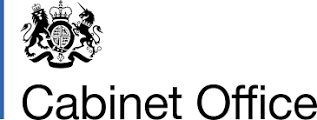The press release issued by the Cabinet Office on 31 January 2024.
Introduction of new border controls will help guard against incoming diseases and pests while minimising burdens and costs for traders and consumers.
- New border controls introduced today will help prevent the import of diseases and pests from animal and plant products
- Series of new controls will minimise burdens and costs for traders and consumers
- This is the first major step towards making the UK the most advanced border in the world
Today (31st January 2024), the UK takes a major step in improving its biosecurity and keeping the country safe from diseases.
New border controls will come into effect for animals, plants and plant products imported to Great Britain from the EU. Products which present a ‘medium risk’ to biosecurity and health will now require export health certificates and phytosanitary certificates, where currently they enter the UK without them.
As a global trading nation, diseases carried from imported animals, animal products, plants and plant products pose a serious risk to the UK’s biosecurity. Risk-based border controls are essential to manage this and ensure that we only import safe, high-quality products.
Risk-based controls also mean that imports from all countries will be assessed the same way, where ‘high-risk’ products undergo necessary checks, and ‘low-risk’ products are imported more freely when it is safe to do so.
The controls coming into effect today are part of the Border Target Operating Model, which has been designed with traders and consumers at the forefront.
The model will minimise burdens for traders by making smart use of data and technology. Health certificates are being digitised and simplified, where currently they are paper-based and complex. The Single Trade Window will remove the need for traders to provide the same data multiple times, and Trusted Trader schemes will significantly reduce controls for our most credible traders.
Controls are being applied on goods from Ireland for the first time. However, thanks to the Windsor Framework, Northern Ireland (NI) goods will benefit from full and unconditional unfettered access, regardless of whether they move indirectly via Ireland. This will further bolster Northern Ireland’s place within the UK’s economic union and more squarely focus the benefits of unfettered access on NI traders.
The introduction of the Border Target Operating Model also sharpens the competitive advantage of Northern Ireland businesses, who now have unique unfettered access to both their primary market in GB as well as and the EU single market.
Government has worked extensively with traders both in the UK and in the EU to ensure the new controls and requirements are clear and that they have ample time to prepare.
In the design phase of the Border Target Operating Model, Government consulted thousands of stakeholders through events, focus groups and through written correspondence. Since the model was published, there has been ongoing communication with industry.
DEFRA has also conducted a Trader Readiness Survey which captures views from industry, which the department continuously monitors and uses to address concerns.
The controls coming into place today are the first major step the Government is taking to improve the UK’s border. Two further sets of controls will be introduced this year.
From 30 April 2024, Government will introduce documentary, physical and identity checks at the border for medium risk animal products, plants and plant products imported to Great Britain from the EU except goods that enter Great Britain via West Coast ports.
31 October 2024, Government will further simplify traders’ management of Sanitary and Phytosanitary requirements. Safety and Security declarations will also be required for all goods moving from the EU to Great Britain. These controls were announced in the Border Target Operating Model in August 2023, which sets out a risk-based approach to importing that will be introduced progressively.
These controls were announced in the Border Target Operating Model in August 2023, which sets out a risk-based approach to importing that will be introduced progressively.
Baroness Neville-Rolfe, Minister of State at the Cabinet Office, said:
Our aim is to have border controls which maximise the protection of the UK population from harms such as drugs and animal and human diseases while minimising the disruption to legitimate trade. The new UK system being introduced over the course of this year makes a huge stride towards meeting this objective. We have worked with traders and businesses extensively to design the controls and will continue to listen to their feedback.
Biosecurity Minister Lord Douglas-Miller said:
Border controls on imported goods are vitally important to safeguard our high biosecurity standards, protecting the UK from potentially harmful pests and diseases, and maintaining trust in our exports.
These checks must also be proportionate and pragmatic – which is why we’ve taken a phased approach to implementing the new system and are working closely with industry to help them prepare.
The controls introduced today strike the right balance between trade and biosecurity.
